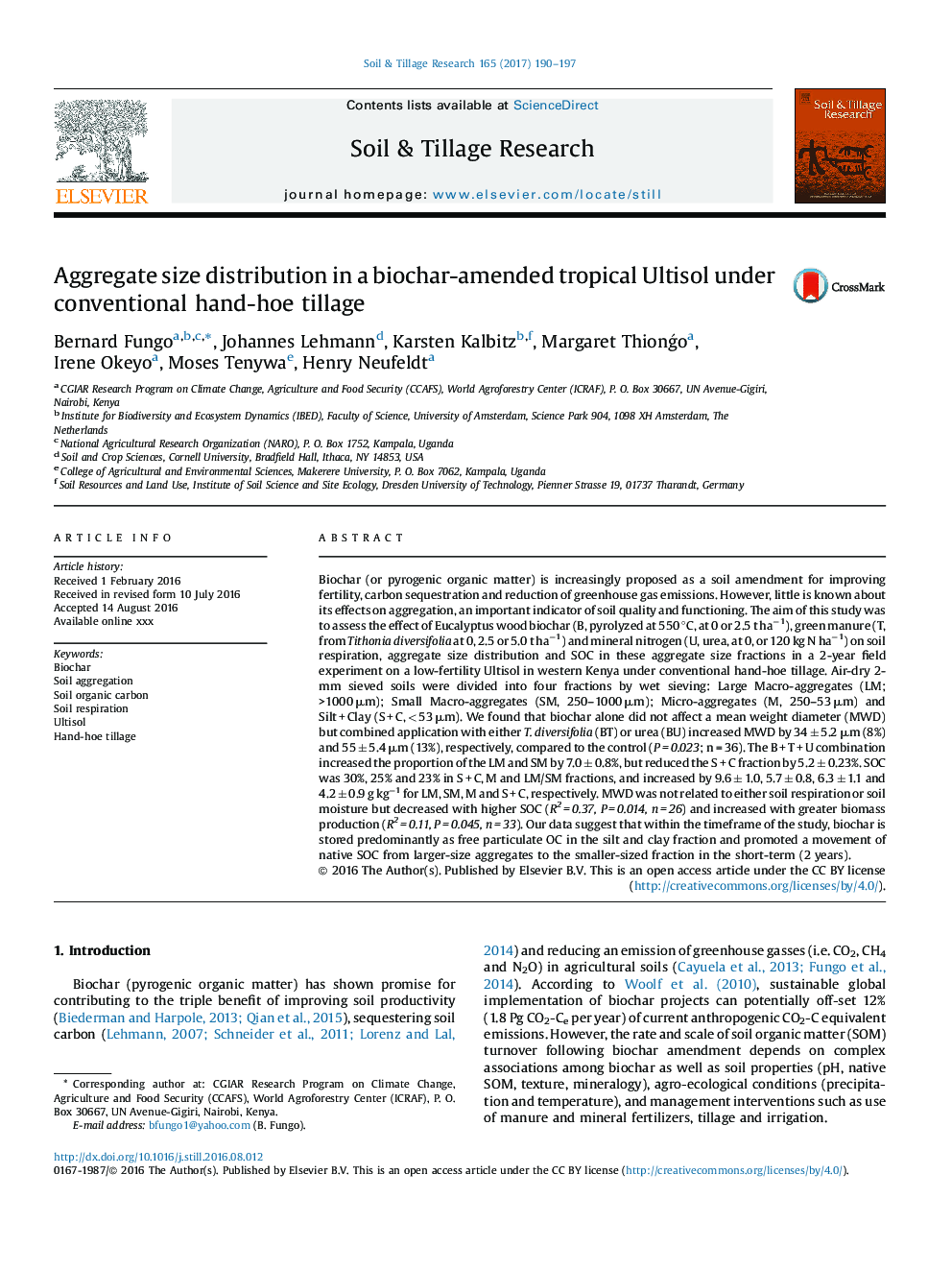| Article ID | Journal | Published Year | Pages | File Type |
|---|---|---|---|---|
| 6773310 | Soil and Tillage Research | 2017 | 8 Pages |
Abstract
Biochar (or pyrogenic organic matter) is increasingly proposed as a soil amendment for improving fertility, carbon sequestration and reduction of greenhouse gas emissions. However, little is known about its effects on aggregation, an important indicator of soil quality and functioning. The aim of this study was to assess the effect of Eucalyptus wood biochar (B, pyrolyzed at 550 °C, at 0 or 2.5 t haâ1), green manure (T, from Tithonia diversifolia at 0, 2.5 or 5.0 t haâ1) and mineral nitrogen (U, urea, at 0, or 120 kg N haâ1) on soil respiration, aggregate size distribution and SOC in these aggregate size fractions in a 2-year field experiment on a low-fertility Ultisol in western Kenya under conventional hand-hoe tillage. Air-dry 2-mm sieved soils were divided into four fractions by wet sieving: Large Macro-aggregates (LM; >1000 μm); Small Macro-aggregates (SM, 250-1000 μm); Micro-aggregates (M, 250-53 μm) and Silt + Clay (S + C,â< 53 μm). We found that biochar alone did not affect a mean weight diameter (MWD) but combined application with either T. diversifolia (BT) or urea (BU) increased MWD by 34 ± 5.2 μm (8%) and 55 ± 5.4 μm (13%), respectively, compared to the control (P = 0.023; n = 36). The B + T + U combination increased the proportion of the LM and SM by 7.0 ± 0.8%, but reduced the S + C fraction by 5.2 ± 0.23%. SOC was 30%, 25% and 23% in S + C, M and LM/SM fractions, and increased by 9.6 ± 1.0, 5.7 ± 0.8, 6.3 ± 1.1 and 4.2 ± 0.9 g kgâ1 for LM, SM, M and S + C, respectively. MWD was not related to either soil respiration or soil moisture but decreased with higher SOC (R2 = 0.37, P = 0.014, n = 26) and increased with greater biomass production (R2 = 0.11, P = 0.045, n = 33). Our data suggest that within the timeframe of the study, biochar is stored predominantly as free particulate OC in the silt and clay fraction and promoted a movement of native SOC from larger-size aggregates to the smaller-sized fraction in the short-term (2 years).
Related Topics
Physical Sciences and Engineering
Energy
Renewable Energy, Sustainability and the Environment
Authors
Bernard Fungo, Johannes Lehmann, Karsten Kalbitz, Margaret Thionģo, Irene Okeyo, Moses Tenywa, Henry Neufeldt,
